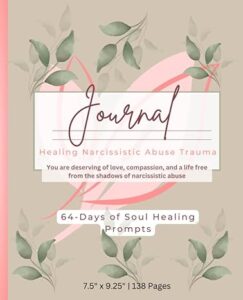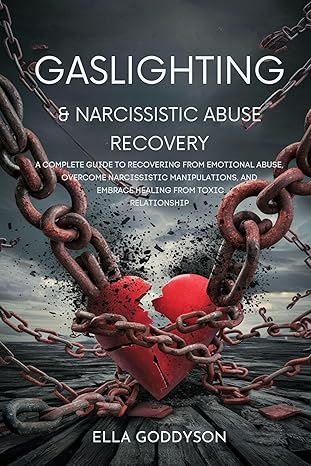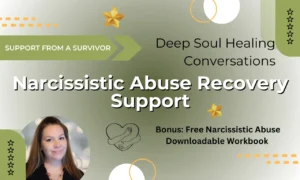
Link with a Survivor Who Has Experienced the Narcissistic Abuse Journey
Narcissistic Abuse Recovery
Understanding the Trauma and the Path to Healing
Narcissistic abuse is a deeply damaging form of emotional and psychological manipulation that often leaves victims feeling lost, confused, and questioning their very sense of reality.
The abuser, typically a person with narcissistic traits or narcissistic personality disorder, uses a variety of tactics to maintain control, weaken the victim’s sense of self-worth, and ensure dependency.
In this blog post, we’ll delve into what narcissistic abuse looks like, highlight common manipulation tactics, discuss the long-term effects on victims, and explore the critical role mentorship can play in recovery.
What is Narcissistic Abuse?
Narcissistic abuse refers to patterns of behavior where the abuser manipulates their partner or loved one to maintain control, inflate their ego, and diminish the victim’s self-esteem.
In other words to DOMINATE you!
Unlike physical abuse, which may leave visible scars, narcissistic abuse often manifests emotionally, and psychologically, making it harder for victims and outsiders to recognize.
This doesn’t mean that Physical abuse is not typical, it is.
Victims of narcissistic abuse often find themselves questioning their perception of events and reality itself.
The abuser manipulates the truth in subtle yet powerful ways, causing the victim to feel dependent on the abuser for emotional validation and reality checks.

This simple and discreet workbook supports you as you take courageous steps toward escape, healing and self-discovery.
Key Tactics of Narcissistic Abuse
Narcissists use a variety of tactics to maintain control over their victims, with three of the most common being gaslighting, love-bombing, control dynamics, and more.
1. Gaslighting
One of the most insidious forms of emotional manipulation.
It involves distorting the truth to the point where the victim begins to doubt their perception of reality.
The narcissist might deny certain events ever happened, twist facts, or insist that the victim is being overly sensitive or irrational.
Over time, the victim questions their memory, judgment, and even sanity.
Gaslighting is a powerful tool used to confuse and destabilize the victim, making them more dependent on the abuser.
2. Love-Bombing
Love-bombing is a tactic where the narcissist showers the victim with affection, gifts, and attention at the start of the relationship or during moments of tension.
This overwhelming display of love creates a strong emotional bond and keeps the victim attached.
However, once the narcissist feels secure in their control, they often withdraw their affection, leaving the victim in a state of confusion, constantly chasing that initial love-bombing phase in hopes of regaining the relationship’s initial warmth.
3. Control Dynamics
Control is the foundation of narcissistic abuse. Narcissists exert control by isolating the victim from their friends and family, making decisions on their behalf, or using financial, emotional, or verbal manipulation. This control can be so pervasive that the victim feels trapped, with little to no autonomy in their own life.
4. Breadcrumbing
Refers to a manipulative tactic where the narcissist gives their victim just enough attention, affection, or communication to keep them emotionally invested without offering genuine commitment or consistency.
The narcissist “drops crumbs” of affection or validation—small gestures, kind words, or occasional messages—leading the victim to believe the relationship is progressing or that the narcissist cares, even though their overall behavior remains neglectful, distant, or abusive.
This tactic is designed to maintain control and ensure the victim remains attached, constantly seeking more attention or love, while the narcissist keeps them in a state of emotional uncertainty.
By doing so, the narcissist can manipulate the victim’s emotions without providing a meaningful connection or support to the victim.
Just to name a few!
The Long-Term Effects of Narcissistic Abuse
Narcissistic abuse doesn’t just leave immediate emotional scars; its effects can last long after the victim has escaped the abusive relationship.
Some of the most common long-term effects include:
1. Emotional Trauma
Survivors of narcissistic abuse often experience intense emotional trauma.
The constant manipulation, devaluation, and gaslighting can erode the victim’s self-esteem and leave them feeling worthless.
This trauma may manifest as anxiety, depression, or even symptoms of PTSD.
Emotional wounds from narcissistic abuse can take years to heal, and without the proper support, victims may continue to struggle with feelings of self-doubt and inadequacy.
2. Trust Issues
The betrayal of trust in a narcissistic relationship can make it incredibly difficult for survivors to trust others.
After enduring manipulation and deceit, victims may become hyper-vigilant, constantly questioning the motives of people in their lives.
This can make future relationships challenging, as survivors often fear being manipulated or hurt again.
3. Self-Doubt and Identity Erosion
One of the most devastating effects of narcissistic abuse is the erosion of the victim’s identity.
Narcissists work systematically to undermine their victim’s confidence and sense of self-worth.
Over time, victims may lose touch with their desires, needs, and opinions, becoming a reflection of the narcissist’s manipulations. This leads to profound self-doubt and confusion about one’s true identity.
Gaslighting & narcissistic abuse recovery: A complete guide to recovering from emotional abuse, overcoming narcissistic manipulation, and embrace healing from toxic relationships.
Building a Supportive Community
The Path to Recovery: Why Mentorship Matters
Recovering from narcissistic abuse is a long and complex journey, often filled with moments of self-doubt, confusion, and emotional pain.
One of the most effective ways to support this healing process is through the guidance of a narcissistic abuse mentor.
1. What is a Narcissistic Abuse Mentor?
A narcissistic abuse mentor is someone who has a deep understanding of the patterns and effects of narcissistic abuse, often having survived similar experiences themselves.
They provide practical strategies, emotional support, and guidance to help survivors navigate their recovery.
Unlike traditional therapists, mentors often offer a peer-to-peer relationship, sharing insights from their journey to help others heal.
2. How Mentorship Supports Healing
Mentorship can be a powerful tool in the recovery process for several reasons:
Validation of Experiences: One of the most difficult aspects of narcissistic abuse is the feeling of isolation and disbelief in one’s own experiences. A mentor can provide validation, confirming that the victim’s perceptions are real and that they are not alone in their struggle.
Practical Coping Strategies: A mentor can offer useful tools for managing the emotional aftermath of abuse, from setting healthy boundaries to rebuilding self-esteem. This personalized guidance can be incredibly beneficial for those struggling to regain control over their lives.
Emotional Support: Recovering from narcissistic abuse is emotionally exhausting. Having a mentor who understands the highs and lows of the recovery process can provide crucial emotional support during moments of doubt and frustration
These settings foster a sense of camaraderie, creating a supportive network crucial for sustained recovery.
Building Healthy Boundaries: A Key Component of Recovery
One of the primary focuses of mentorship in narcissistic abuse recovery is helping survivors establish healthy boundaries.
Narcissists often violate their victim’s boundaries, making it difficult for survivors to know how to protect themselves in future relationships.
Mentors can help survivors learn to set clear, firm boundaries that protect their emotional well-being while fostering healthier, more balanced relationships.
Some strategies for building healthy boundaries include:
Learning to Say No: Many victims of narcissistic abuse struggle with people-pleasing behaviors, often fearing rejection or conflict. A mentor can teach the importance of saying no when necessary and standing firm in personal values.
Identifying Toxic Behavior: Recognizing the signs of manipulation and control is essential to preventing future abuse. Mentors can help survivors become more aware of red flags and encourage them to trust their instincts.
Rebuilding Confidence: Setting boundaries requires a strong sense of self-worth, something that is often shattered in the wake of narcissistic abuse. Mentors work closely with survivors to rebuild their confidence and encourage self-care practices that foster emotional resilience.
The Road Ahead: Rediscovering a Sense of Self
For many survivors, recovering from narcissistic abuse is not just about healing from the trauma—it’s also about rediscovering their identity.
Narcissistic abusers often strip away their victim’s sense of self, leaving them feeling lost and disconnected from their desires, values, and passions.
The recovery process involves reconnecting with one’s true self and learning to trust again.
This process can include:
Journaling: Writing about one’s experiences can be a therapeutic way to process emotions, gain clarity, and rediscover personal interests and passions that may have been suppressed during the abusive relationship.

Reconnecting with Loved Ones: Narcissists often isolate their victims, cutting them off from supportive friends and family. Part of the healing journey involves rebuilding these important connections and leaning on trusted individuals for emotional support.
Pursuing Personal Goals: After escaping a narcissistic relationship, many survivors feel empowered to pursue personal goals that were previously suppressed or devalued. Whether it’s returning to school, starting a new career, or engaging in creative hobbies, rediscovering personal ambitions can be crucial to healing.
Conclusion
Narcissistic abuse is a painful and deeply damaging form of emotional manipulation that can leave lasting scars.
However, with the right support, survivors can rebuild their sense of self-worth, develop healthy boundaries, and heal from the trauma.
Mentorship plays a critical role in this process, offering guidance, validation, and practical strategies for recovery.
Whether you’re on the journey to healing or supporting someone who is, understanding the tactics of narcissistic abuse and the importance of mentorship can make all the difference in reclaiming a life of emotional health and well-being.

